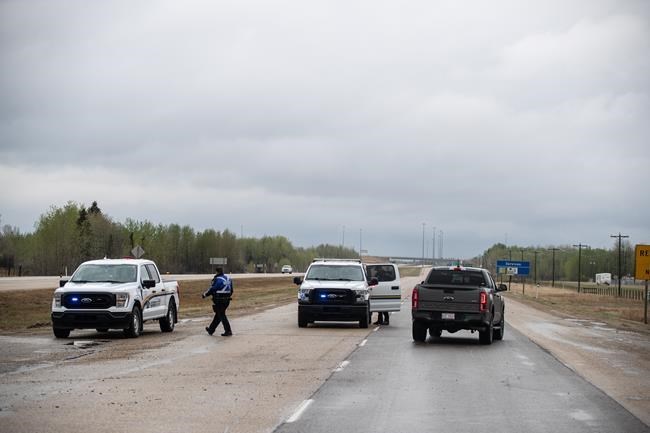Alberta and British Columbia are bracing for an unseasonable heat wave with daytime highs soaring up to 15 degrees above normal over the coming days, though overnight temperatures are expected to provide some relief.
Armel Castellan, an Environment Canada meteorologist in B.C., said the coming heat shares some of the same characteristics as a so-called heat dome.
"It's the same idea, the same pattern if you will," he said during a media briefing. "A heat wave, a high pressure ridge, all of these things are essentially the same idea."
But he said this heat event doesn't have the potential to reach the same extreme highs recorded in June 2021, when temperatures in B.C.'s Interior pushed into the 40s.
"We're not looking at the same animal in that sense," he said Thursday.
Castellan said the nights are still longer and cooler in mid-May than they were during the late-June heat dome two years ago, which the B.C. Coroners Service has said caused more than 600 heat-related deaths.
Still, Sarah Henderson with the B.C. Centre for Disease Control said it's crucial for people who are susceptible to heat to stay hydrated as temperatures rise.
"They key concern is people overheating, and what that means is core body temperatures getting too high," she told the briefing.
"That overheating of the body can lead to exhaustion and heat stroke."
The indicators of heat illness include headache, dizziness, muscle cramps, extreme thirst and feeling disoriented, she said.
Henderson said people who are feeling too hot should take immediate action to cool down, such as taking a cold shower or heading to a cool, indoor area.
B.C. Health Minister Adrian Dix said temperatures are not expected to reach thresholds that would trigger a heat emergency over the coming days, but it's possible that less urgent heat alerts may be issued.
Dix said during an unrelated media briefing on surgical wait-lists that the province is better prepared to respond to extreme heat now than it was in 2021. It implemented a new system for warning the public about dangerously high temperatures and added hundreds of new paramedic positions, he said.
All of Alberta and most of B.C. are blanketed with special heat advisories from Environment Canada, and a special air quality statement is also in effect for much of western Alberta in response to smoke from dozens of early-season wildfires.
In B.C., the weather office said the unseasonably hot weather will begin Friday and continue through Tuesday, with the heat peaking Sunday and Monday.
A statement from the B.C. government said daytime highs in the Interior, Lower Mainland and Sea to Sky areas will hit the low to mid-30s, while Vancouver Island and the Sunshine Coast will see temperatures in the high 20s and low 30s.
The heat wave is a "very strong anomaly" for this time of year, Castellan said.
"A lot of widespread daily temperature maximum records are going to break through this event, there's no doubt about that," he said Thursday, noting the heat is also significant because it's raising the risks of wildfires and flooding.
The hot, dry conditions will start in Alberta this weekend, with the highest temperatures above 30 C expected from Sunday through Tuesday.
The Alberta government declared a provincial state of emergency last weekend in response to wildfires that have forced thousands of people from their homes.
The wildfire situation has also been heating up in B.C., particularly in the northeastern corner of the province near the boundary with Alberta.
A statement from the province said the burned area is four times larger than normal, due largely to three wildfires in the Peace River Regional District.
Meanwhile, high streamflow advisories cover much of B.C. as the coming heat wave raises the risk of flooding from rapidly melting snow in the mountains.
The B.C. government said key areas of concern include the Fraser River from Prince George through the Fraser Canyon, along with the Cariboo Mountains, North and South Thompson, Shuswap, Similkameen, Kootenay and Skeena regions.
B.C.'s River Forecast Centre is also maintaining a higher-level flood warning for the Bonaparte River near the village of Cache Creek, west of Kamloops, where residents are mopping up from flooding last week.
This report by The Canadian Press was first published May 11, 2023.
Brenna Owen, The Canadian Press



